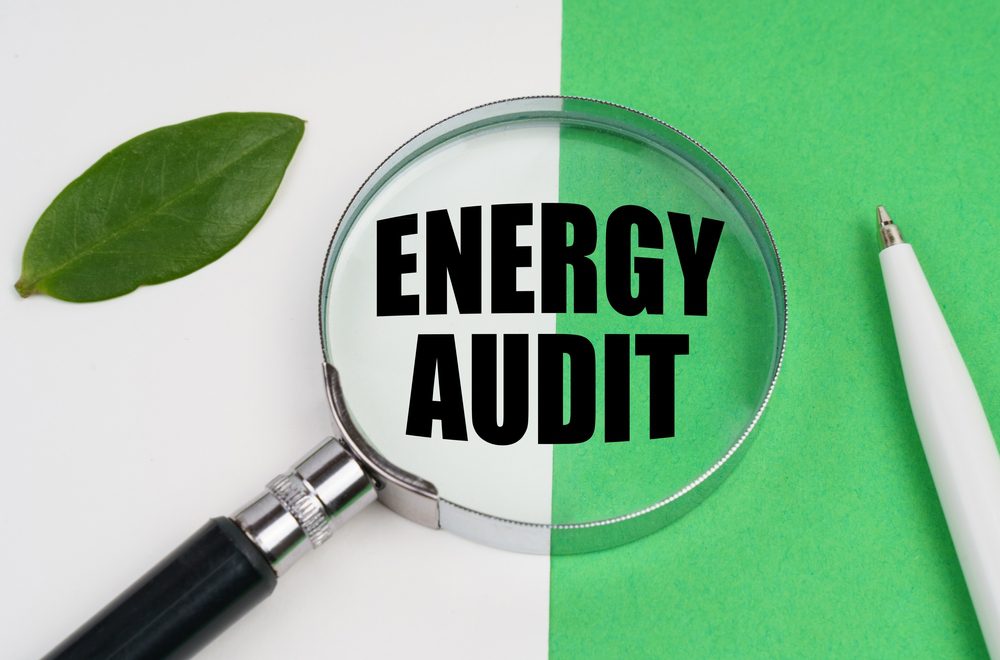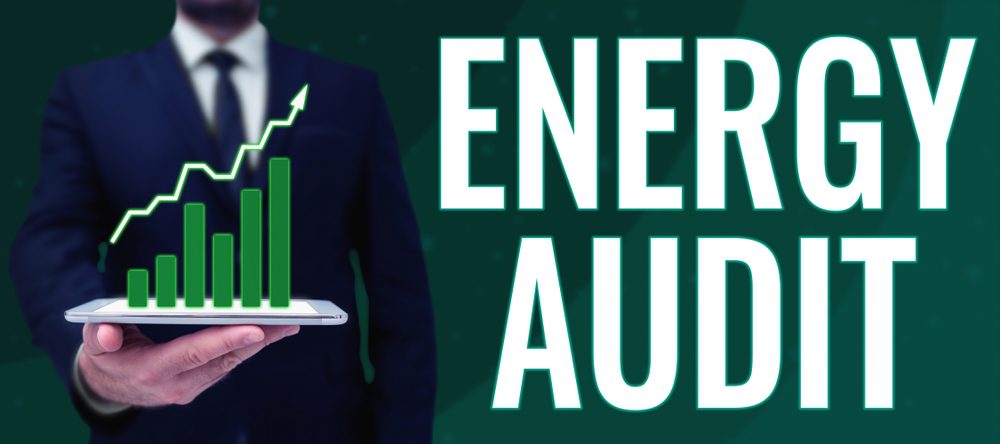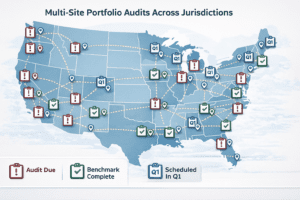We all know that the world needs to become more energy efficient if we are going to have any chance of fighting climate change, but how do we achieve this goal? An energy audit can be a great first step. This type of audit is becoming increasingly important in all economic sectors as businesses, homes, and other types of buildings look for ways to reduce their environmental impact and save on energy bills.
Here, we will dive deep into why an energy audit is essential in all sectors today – from its ability to identify areas where significant savings can occur to improving safety standards in many workplace environments. We’ll look at key benefits an audit provides plus some best practices when conducting one – so let’s get started!
What Are Energy Audits?
Energy audits are a process that organizations can use to achieve energy efficiency and save money. First, a detailed analysis of the organization’s energy consumption patterns is conducted to identify areas where energy costs can be reduced while still meeting operational requirements. Then, an expert in the field reviews the audit results and provides recommendations based on their findings.
These recommendations typically include implementing energy-efficient measures, upgrading lighting fixtures or electrical systems, and optimizing operating settings to achieve maximum energy efficiency. Performing an energy audit is a great way for anyone looking to reduce their environmental impact and energy expenses.
Purpose Of Energy Audits
Energy Audits conduct residential energy assessments to help homeowners better understand the inefficiencies in their home’s energy usage and how they can improve it. Using sophisticated analysis tools and data analysis techniques, Energy Auditors can identify the sources of wasted energy input in residences and make cost-saving recommendations to improve energy efficiency.
Lowered utility bills, enhanced comfort, decreased environmental impact, and improved safety is some of the many benefits of implementing these recommendations. Ultimately, a homeowner can save money by conducting an Energy Audit while doing their part for the environment.
Why is an energy audit in all sectors needed?

In order to save energy and minimize energy wastage, energy audits in all sectors are essential. An energy audit reviews energy usage patterns to help identify cost-cutting measures and system defects and identify energy-saving goals. Through energy audits, energy-saving plans can be developed and implemented.
These energy-saving plans can save businesses thousands in energy costs each year, making energy auditing an invaluable tool for organizations looking to cut costs without sacrificing important resources. Investing in energy efficiency also helps improve the environment by reducing emissions from power plants that burn fossil fuels for electricity generation. Therefore, energy audits in all sectors are essential for conserving energy and promoting sustainable practices.
What Is The Procedure Of Energy Audit
An energy audit is a key step in energy saving and energy management. To get started, the energy auditor first walks through the building or facility to assess energy usage and energy-saving opportunities. The energy auditor then makes recommendations for energy-saving changes that can be made.
These may include adding equipment such as solar panels, replacing existing systems with more energy-efficient models, or changing behaviors and practices for energy conservation. After examining the recommendations, the organization will create an energy-saving plan outlining what needs to be done to maximize energy efficiency. This plan will outline necessary renovations, upgrades, and investments to achieve the desired energy savings goals.
Why Are Energy Audits Important
Energy audits are key to understanding energy performance and identifying energy efficiency upgrades. A professional energy audit highlights opportunities to save energy and money, recommends strategies that can be implemented for energy savings and sets goals for energy savings – all tailored to your specific energy needs.
Over time, energy audits help identify waste areas, allowing businesses to develop a long-term energy strategy that prioritizes maximum efficiency while still optimizing business performance. Importantly, energy audits also provide information on grants and incentives that may be available to help cover the costs associated with installing energy-efficient upgrades.
Taken together, energy audits are a critical ingredient in establishing energy performance goals and laying out an achievable path toward reducing operating expenses while meeting the highest environmental standards.
What Is an Energy Audit Checklist?
An energy audit checklist is an important tool when assessing the energy efficiency of your home or business. This audit is designed to help you identify areas of wasted energy and how you can save money and reduce your carbon footprint by making changes that can improve efficiency.
From the insulation in walls and ceilings to the appliances used throughout your space, the components that make up an energy audit checklist will provide a comprehensive analysis of what needs to be done. With this valuable insight, you’ll be on your way to creating a more energy-efficient home or office in no time!
Why Is An Energy Audit Important?
An energy audit is an invaluable tool that can drastically reduce your environmental footprint and help you save money in the long run. By thoroughly examining the energy uses on your property, an energy auditor can provide an in-depth analysis of all energy usage sources, pinpoint issues resulting in waste, identify opportunities for cost savings, and suggest ways to make more efficient use of available resources.
The average homeowner or business owner can benefit from such an audit – making small changes to improve efficiency can add to significant financial savings. Additionally, changes made to reduce energy usage also help protect our environment and create a healthier world for everyone. Therefore, pursuing an energy audit should be considered by anyone looking to increase their sustainability quotient and work towards having a more meaningful impact on the planet.
Benefits Of Investing In Energy Audits
Here are the benefits of investing in energy audits:
1. Maximize Energy Efficiency: An energy audit can help identify potential areas of improvement in a home or business’s energy usage, allowing for better efficiency and savings. This leads to lower energy bills, improved comfort, and increased sustainability.
2. Uncover Hidden Problems: An energy audit can reveal hidden problems that could potentially cause more energy waste. These problems might not be immediately obvious, but they can often be detected by an energy audit and corrected to save money in the long run.
3. Improve Air Quality: An energy audit can uncover potential issues with indoor air quality, such as poor ventilation, inadequate insulation levels, or other environmental factors that could impact air quality.
4. Long-Term Savings: An energy audit can identify long-term solutions to improve efficiency and save money in the long run. This can include replacing outdated equipment, installing more efficient insulation materials, or making simple changes like improving air sealing and weather stripping.
5. Financial Incentives: Many utility companies offer financial incentives and rebates for customers who invest in energy audits and improvements. These incentives can help offset the cost of an energy audit or improvements, making them a more attractive option.
6. Environmental Responsibility: Investing in energy efficiency helps reduce greenhouse gas emissions and prevent pollution. This is something that’s important to many people, businesses, and governments, and investing in an energy audit is an important step toward achieving this goal.
By investing in an energy audit, you can make sure that your home or business is running as efficiently as possible, save money on energy costs, and become more environmentally responsible. This makes it well worth the investment for many people.
Additionally, if you’re looking to buy or sell a home, an energy audit can provide important information to potential buyers or sellers. This could be valuable when it comes to negotiations and understanding the property’s true value. An energy audit might also help identify potential issues that need addressing prior to the sale.
Things To Consider When Investing In Energy Audits

Here is what you should consider when investing in energy audits:
Initial cost and the return on investment: The initial cost of an energy audit will vary depending on the size and complexity of your project and the expertise of the auditor you hire. Be sure to get detailed quotes from several qualified auditors before deciding so that you can compare their costs and determine which offers the best return on investment.
Legal requirements: Depending on the region or state in which you live, there may be legal requirements that must be met before an energy audit can begin. Make sure to check with your local government and/or utility company to determine what is necessary for a successful audit.
Type of audit needed: There are different types of energy audits that may be required for your project, such as a whole-building audit or an engineering analysis. Knowing exactly what type of audit is needed and how it will benefit you can help you make the most informed decision regarding which auditor to hire and how much to invest in the process.
Data requirements: Before an energy audit begins, you must gather the necessary data and records for the auditor to analyze. This includes such items as building plans, utility bills, equipment specifications, etc. Make sure to have all of this information readily available before scheduling an audit so that it does not delay the process.
Level of detail required: Each energy audit will require a certain level of detail and accuracy. Be sure to discuss with your auditor the level of detail needed to provide an accurate assessment of your building’s energy efficiency and any potential improvements that can be made.
Timing: Depending on the complexity and scope of the audit, it may take several weeks or even months for the process to be completed. Make sure that you have a timeline in place with your auditor so that you can plan accordingly and stay on schedule.
Considering these factors, you will be better equipped to make an informed decision when investing in energy audits. Doing so will ensure that you get the best value for your money and that you can achieve the highest energy efficiency and sustainability possible.
The Bottom Line
An energy audit is crucial in all sectors in order to achieve greater efficiency and sustainability. However, a comprehensive understanding of the audit process is necessary to succeed. This includes having knowledge about the types of equipment being used, as well as their abilities and limitations. Additionally, utility companies need to work together with businesses and industries in order to ensure that an effective energy management system is developed and implemented. Energy audits can help reduce greenhouse gas emissions, improve economic competitiveness, and save money—but only if done correctly.














